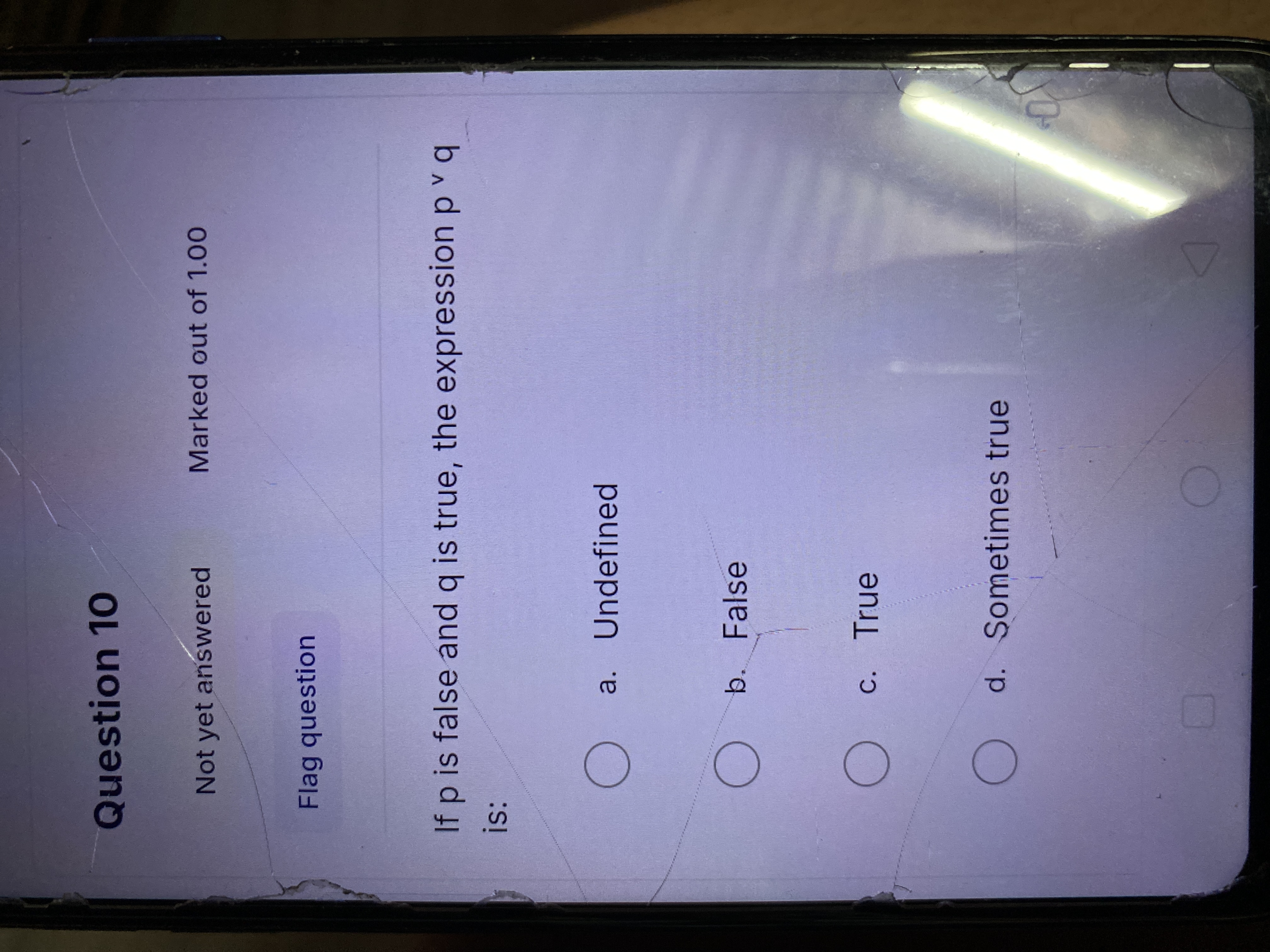If p is false and q is true, the expression p ∨ q is:

Understand the Problem
The question is asking for the truth value of the logical expression p ∨ q when p is false and q is true. The user needs to determine what the result of this expression is based on the provided truth values.
Answer
True, the expression \( p \lor q \) evaluates to True.
Answer for screen readers
The expression ( p \lor q ) is True.
Steps to Solve
-
Identify the logical expression The expression given is ( p \lor q ), which represents a logical OR operation. In this operation, the result is true if at least one of the operands is true.
-
Determine the truth values of p and q According to the problem:
- ( p ) is false
- ( q ) is true
- Evaluate the logical expression We can evaluate ( p \lor q ) using the truth values:
- Since ( p ) is false (0) and ( q ) is true (1), we have: $$ p \lor q = 0 \lor 1 $$
- Apply the truth table for logical OR The truth table for ( p \lor q ) is as follows:
- ( \text{False} \lor \text{False} = \text{False} )
- ( \text{False} \lor \text{True} = \text{True} )
- ( \text{True} \lor \text{False} = \text{True} )
- ( \text{True} \lor \text{True} = \text{True} )
- Conclude the result From the above evaluation, since ( p \lor q = 0 \lor 1 ) results in True, we conclude that: $$ p \lor q = \text{True} $$
The expression ( p \lor q ) is True.
More Information
In logic, the OR operation requires only one of the statements to be true for the entire expression to be true. This is fundamental in both mathematical logic and computer science programming.
Tips
- Confusing the OR operation with AND: Remember that in an OR operation, only one operand needs to be true for the expression to yield true.
- Overthinking the result: The evaluation is straightforward; just check the values of ( p ) and ( q ).
AI-generated content may contain errors. Please verify critical information